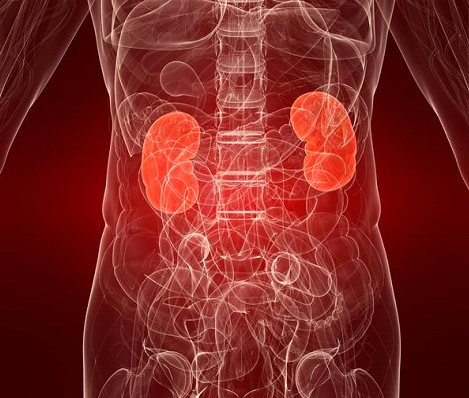Chronic Kidney Disease Symptoms, Causes, Diagnosis and Treatment

What Is Chronic Kidney Disease?
Kidney performs a very important activity of filtering blood, eliminating waste and producing urine. Chronic kidney disease occurs when the kidneys do not filter blood and the waste remains in the body. Early treatment is necessary for chronic kidney disease because it can grow and turn out to be worse. Very often, kidneys fail if chronic kidney disease does not get a proper treatment. Symptoms rarely show up in early stages and experts believe that symptoms evolve once the kidney function is significantly damaged and too much of waste is gathered in the body.
What Are The Symptoms Of Chronic Kidney Disease?
There are several possible symptoms of chronic kidney disease that usually evolves once the kidney function gets highly impaired. These include:
- Hiccups.
- Weariness.
- Weakness.
- In case fluid is gathered around the heart, chest pain may occur.
- Hypertension.
- Difficulty breathing if lungs are affected.
- Nausea and vomiting.
- Poor appetite.
- Difficulty sleeping.
- Constant itching.
- Altered urine output.
- Muscle cramps.
- Ankles and feet may swell.
Observing a combination of these symptoms may not clearly indicate chronic kidney disease. This is because the symptoms are common in other diseases too. Therefore, medical consultation is necessary before starting the treatment.
What Are The Causes Of Chronic Kidney Disease?
There are certain factors that trigger chronic kidney disease. These factors include:
- Vesicoureteral reflux in which urine backs up in kidneys.
- Diabetes type 1 or 2.
- Kidney’s tubules inflammation i.e. interstitial nephritis.
- Hypertension.
- Pyelonephritis i.e. recurrent kidney infection.
- Polycystic kidney disease.
- Urinary tract obstruction due to kidney stone or some form of cancer.
These are the common factors that often lead to an impaired kidney function.
What Are The Risk Factors Of Chronic Kidney Disease?
The following factors increase the risk of suffering from chronic kidney disease:
- An age of 65 or older.
- Heart disease.
- Diabetes.
- Obesity.
- Hypertension.
- Excess cholesterol.
- Smoking.
- Family history.
- African-American, Asian-American or Native American in race.
What Are The Complications Of Chronic Kidney Disease?
If chronic kidney disease is left untreated, the following complications may arise:
- Deteriorating sex drive.
- Pregnancy complications.
- Cardiovascular disease.
- Pericarditis in which pericardium inflammation occurs.
- Kidney failure.
- Arms and legs swelling due to fluid retention.
- Life-threatening hyperkalemia.
How Is Chronic Kidney Disease Diagnosed?
Since the symptoms are common in other diseases and disorders too, the following tests may be required to properly diagnose chronic kidney disease:
- Ultrasound and/or other imaging tests.
- Blood test.
- Kidney tissue biopsy.
- Urine test.
How Is Chronic Kidney Disease Treated?
If the disease has not yet been worse i.e. final-stage kidney disease, the following medications could help improve symptoms and reduce risk of complications:
- Erythropoietin supplements to treat anemia.
- Medications for hypertension and reduced consumption of salt.
- Medications like statins to reduce cholesterol level.
- Calcium and vitamins D supplements to make bones strong.
- Minimizing waste in the body through consumption of low-protein food.
- Diuretics to cure swelling.
If kidney cancer reaches its end stage, dialysis and kidney transplantation could only eliminate chronic kidney disease. In rare cases, both the procedures fail and eventually kidneys fail.
Related Articles:
Acute Kidney Failure Symptoms, Causes, Diagnosis and Treatment
Kidney Stones Symptoms, Causes, Diagnosis and Treatment
Polycystic Kidney Disease Symptoms, Causes, Diagnosis and Treatment
Kidney Cancer Symptoms, Causes, Diagnosis and Treatment
Kidney Infection Symptoms, Causes, Diagnosis and Treatment
Kidney Cyst Causes, Symptoms, Diagnosis and Treatment
Kidney Dysplasia Causes, Symptoms, Diagnosis and Treatment
By : Natural Health News




